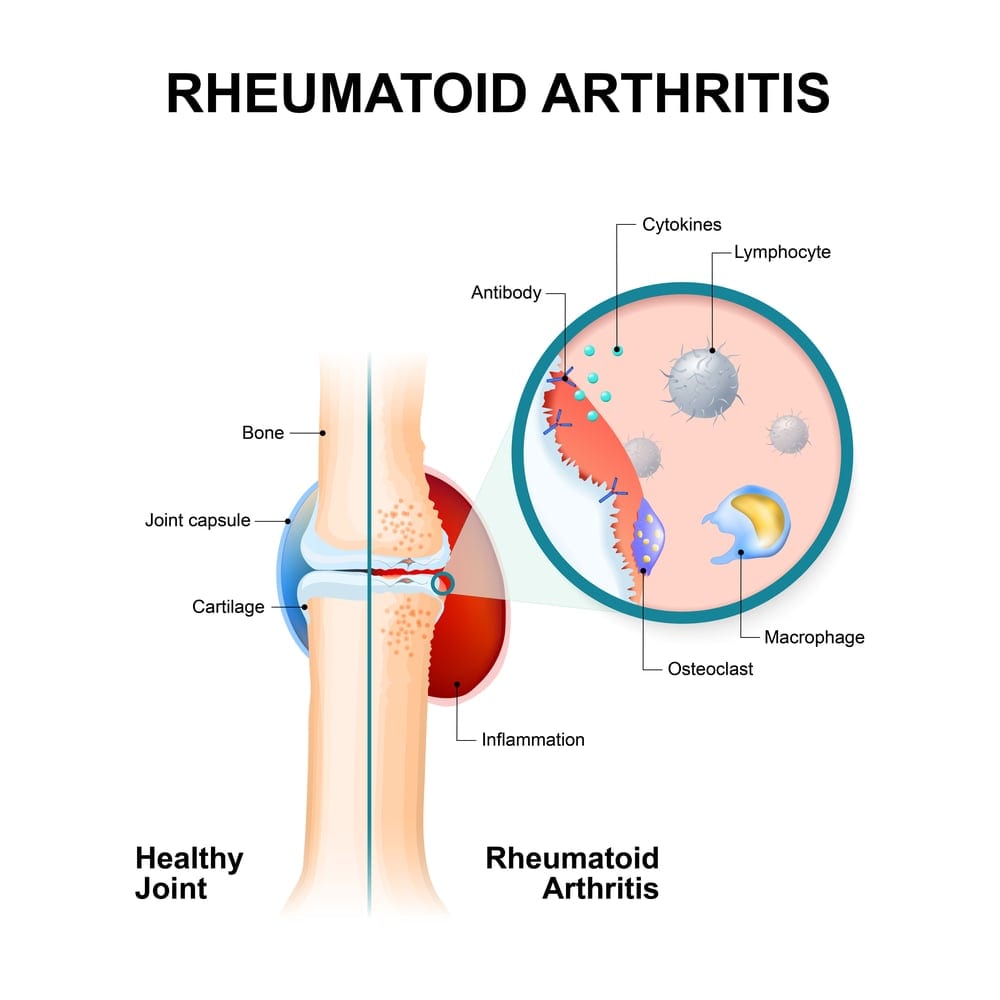Rheumatoid
What is Rheumatoid Arthritis?
Rheumatoid arthritis is an autoimmune inflammatory disease in which the immune system attacks the healthy cells in the body, causing inflammation or swelling of joints.
Rheumatoid arthritis is an ongoing inflammatory disorder that doesn’t only affect the joints. In some cases, it can damage other important parts of the body, including the eyes, skin, lungs, heart, and blood vessels.
At first, rheumatoid arthritis affects smaller joints, such as those in the fingers and toes; however, as the disease becomes more advanced, symptoms of RA are often observed in the joints of the wrists, knees, ankles, elbows, hips, and shoulders.
Symptoms are often felt in the same joints on both the right and left sides of your body.
Around 40 percent of patients diagnosed with rheumatoid arthritis also experience symptoms that are seemingly unrelated to the joints. Rheumatoid arthritis can impact other organs, including:
- Skin
- Eyes
- Lungs
- Heart
- Kidneys
- Salivary glands
- Nerve tissue
- Bone marrow
- Blood vessels
Rheumatoid arthritis can vary greatly in severity; talk to your doctor if you feel that you may be suffering from RA.
Testing For Rheumatoid Arthritis
If you have experienced any of the signs or symptoms mentioned above, the first step is to seek help from your primary care physician, a specialist in autoimmune diseases, or a Rheumatologist. Your doctor will thoroughly analyze your condition and determine if you are in fact experiencing discomfort due to rheumatoid arthritis, or if it may be another cause. They usually assess your medical history, followed by a physical exam. The doctor may suggest a few tests, which can include blood tests, X rays, and other medical scans.
Once your doctor diagnoses the disease, they will create a treatment plan that will help manage the RA and help you get back to living your life.
Treating Rheumatoid Arthritis
If your doctor determines that you are suffering from RA, they will recommend treatment options which often include medications, surgery, and physical therapy.
You will be advised with treatment options based on the severity of your condition. In some cases, the rheumatologist may collaborate with other specialists to determine the best course of treatment for your lifestyle.
For example, occupational therapists can help you discover new methods for getting back to everyday activities. They can offer advice and supervision while you adjust to healthier routines to accommodate your condition.
Psychologists facilitate coping through the lifestyle changes that often occur when dealing with rheumatoid arthritis.
Nurses and dieticians have also proven to be an integral part of the treatment plan to support a patient’s evolving needs and habits.
In rare cases, a specialist may consult an orthopedic surgeon if the patient experiences debilitating pain or immobility from their condition.









